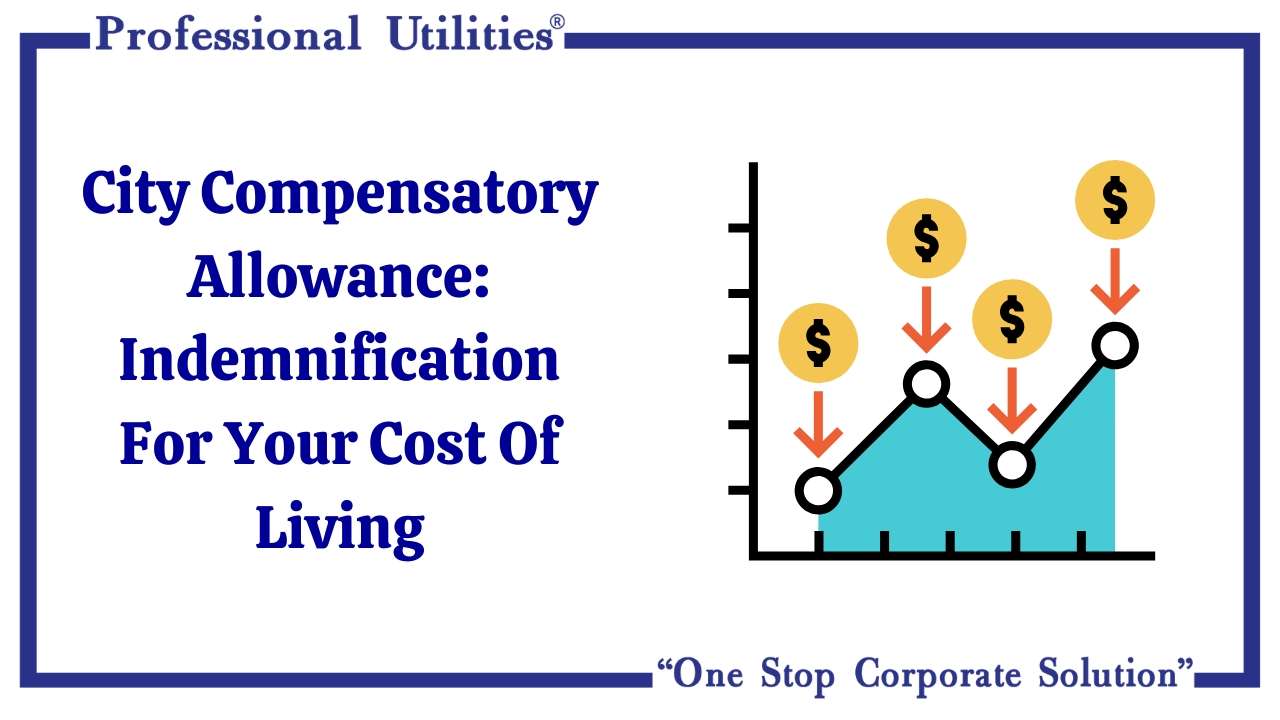
With the present-day scenario of constant inflation in the prices of goods and services across all industries, the cost of living is on a vertical level of increment. Especially in tier-1 and metropolitan cities maintaining a good living standard and managing your budget alongside is difficult. And to get out of the stress of payments, people usually seek jobs that offer higher pays and more perks. Your perks contain City Compensatory Allowance. Let’s find out if the city compensatory allowance taxable or not along with many other information regarding the CCA.
Components of Salary
The major reason most people want to get a secured job is because of the perks, monthly allowances and other things that follow. As such, the salary components include the list of the following:
- Basic salary
- Allowances which include:
- Travel allowance
- House rent allowance
- Dearness allowance
- Vehicle allowance
- City compensatory allowance
- Other special allowances as decided by the employer
- Perks which include:
- Utility bills/salary arrears
- Incentives based on performance
- Others as decided by the employer or company
City Compensatory Allowance (CCA)
Among all the other allowances there is city compensatory allowance which is one of the most important allowances for all those working in tier-1 cities. Under the city compensatory allowance (CCA), a specific amount as decided by the employer or the company is provided to all the employees working in tier-1 cities irrespective of their position in the company. This amount so provided acts as a compensation for the high-living standards in the city, helping the employees financially. It is not decided according to the basic salary of an employee but the city in which they work.
For example, an individual working in Mumbai will be given a higher compensatory city allowance as compared to the other individual working in Kolkata or Pune.
Some companies also give compensatory city allowance to employees working in tier-2 cities depending on the expenses and living standards.
Eligibility for City Compensatory Allowance (CCA)
There are no specific criteria for compensatory city allowance and provided to the people employed in both the public and private sectors. In the case of the private sector, a fixed amount as decided by the employer is paid to all the employees, especially the ones at lower and middle levels of employment, while at times, the higher-level employees are not provided with compensatory city allowance as they already have high pay scales which make them self-sufficient to meet the expenses.
While in the case of the public sector, i.e., individuals employed in government jobs are provided with compensatory city allowance according to rates implied on the CTC (the cost to company) which is usually between 10 to 20% of the salary.
City Compensatory Allowance Rates
There are no specific city compensatory allowance rates as per the laws or government. These city compensatory allowance rates are decided solely by the employer and paid to the employee. Additionally, one can check the city compensatory allowance rates and other details on the salary slip and is also calculated as a part of the gross salary of the individual.
Is the city compensatory allowance taxable?
Yes. According to Section 10(14) under the Income Tax Act 1961, the amount so provided by the company as CCA is liable for the payment of taxes. The tax rates will be similar to the income tax rate slab that has to be paid on the basic salary of the individual.
Further, for the city compensatory allowance taxable cannot be exempted from the taxes under any circumstances and has to be paid by all the individuals alike.
Difference between basic salary and gross salary
Basic salary is the fixed amount which is paid to the employee with the inclusion of any other inclusions and allowances, and the gross salary is the total amount received by the employee including all the allowances, which also includes the city compensatory allowance taxable among the others.
Additionally, no deductions can be made on the basic salary. And are always lesser than the gross salary or the salary which the employee gets along with all the perks.
House Rent Allowance and Dearness Allowance
DA – To compensate for inflation, there is an increase in DA every year in your salary. Moreover, it is a cost of living adjustment.
HRA – It is a fixed percentage of the basic salary. You can claim tax rebate up to Rs 1,000,00 annually on rent under Section 80C of the Income Tax Act.
Conclusion
Among the ever-increasing growth in the market prices of the services and goods, the city compensatory allowance comes as a saviour for all the individuals employed in the corporate sector. In a nutshell, it is quite a privilege offered to all the employees working in the tier-1 cities to compensate for their daily expenses.
Why Professional Utilities?
At Professional Utilities, we leverage our industry knowledge and expertise to help businesses navigate complex regulations, minimize risks, and optimize operations for maximum efficiency and profitability.

One Stop Corporate Solution

PAN India
Services

Free Expert
Assistance

Google Verified
Business

Dedicated Support
Staff


.svg)







